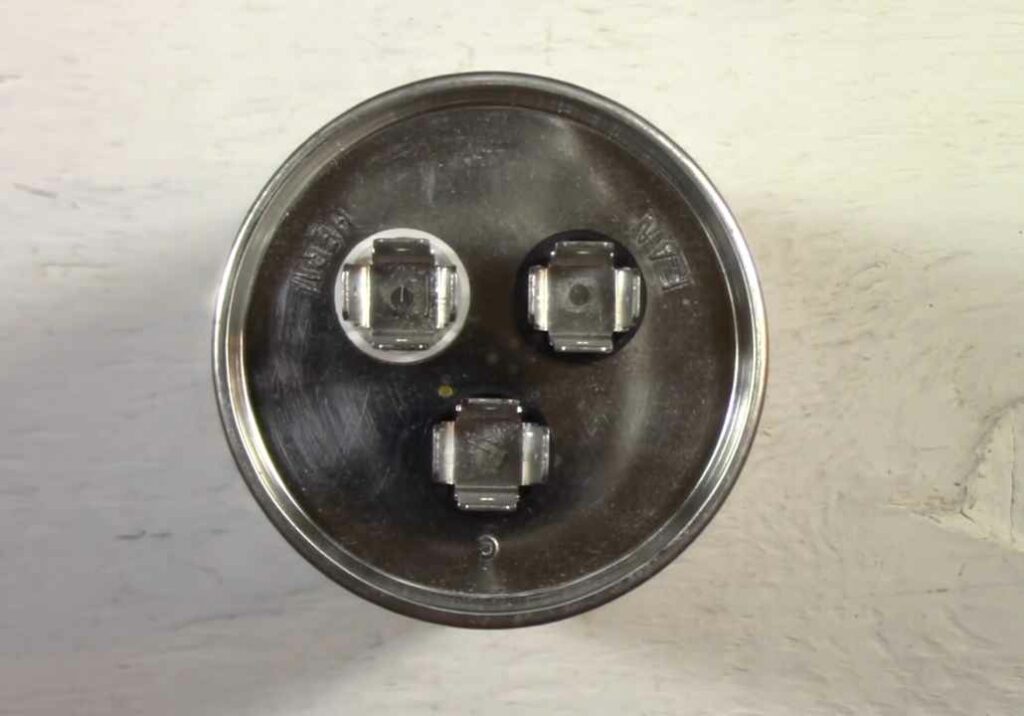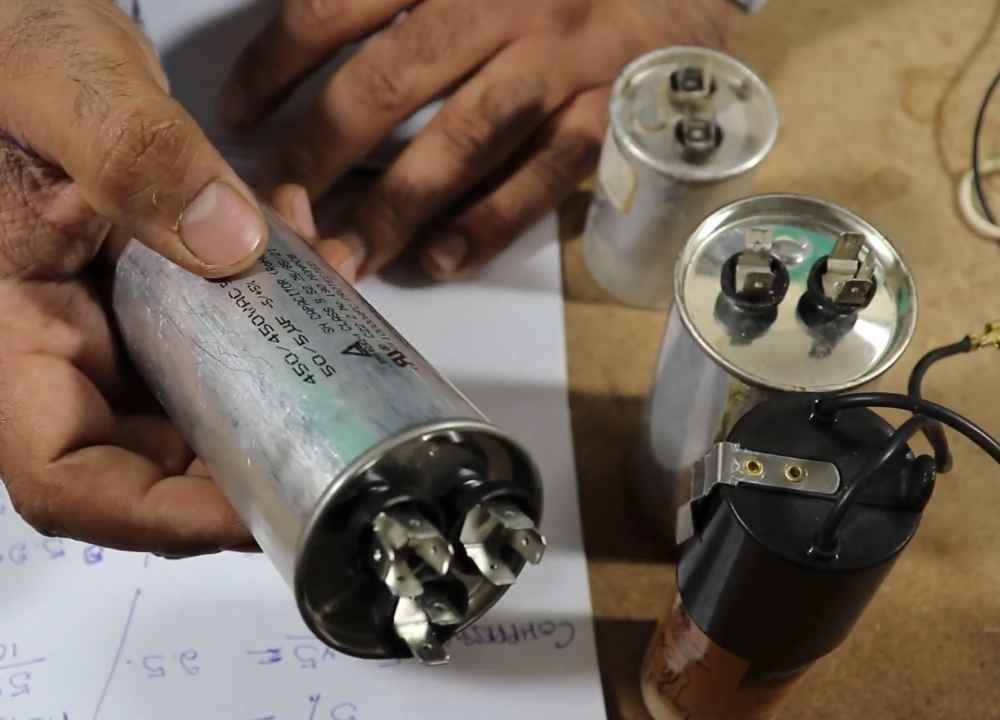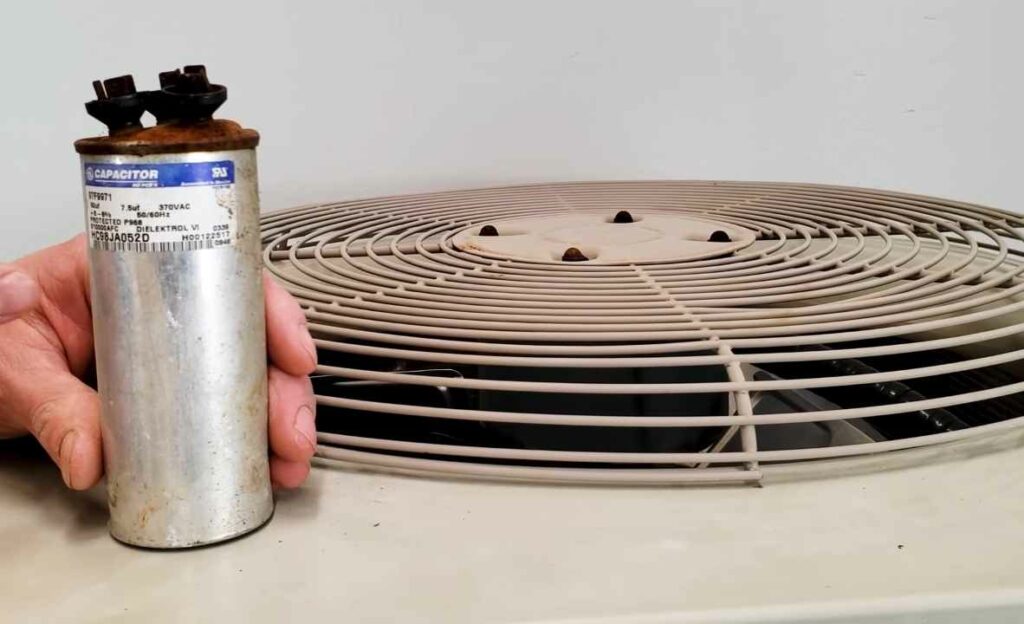No, you cannot use any capacitor for your AC unit.
The type of capacitor used in an AC system is determined by the amount of current it will handle and the voltage rating it must maintain to operate correctly.
If the wrong type of capacitor is installed, then your ac unit won’t work properly or may even be damaged due to overvoltage conditions.
As such, it is important to choose the right capacitors that are compatible with your air conditioner model and its specifications.
- Step 1: Determine the size of the capacitor you will need for your AC unit.
- This will depend on the type and brand of air conditioner you are using, as well as its power rating.
- Step 2: Purchase a capacitor with the appropriate voltage rating from an electronics store or online retailer.
- Make sure to get one that is rated for use in HVAC (heating, ventilation, and air conditioning) systems.
- Step 3: Disconnect all power sources from your AC unit before attempting to install a new capacitor.
- This includes unplugging it from any wall outlets or disconnecting it from any other connected circuits.
- Once this is done, locate where the old capacitor was mounted inside your AC unit so that you can remove it easily.
- Step 4: Remove all wires connecting to the terminals of your old capacitor and make sure they are labeled clearly so that they can be reattached later with ease.
- Take out any screws securing it in place before gently pulling out the old component completely.
- Step 5: Insert your new capacitor into place in exactly where you removed the previous one from and secure it firmly by tightening any screws tightly if necessary – double-check that these connections are tight!
- Then attach each wire back onto their respective terminals according to how they were labeled earlier; some capacitors may have more than two terminals depending on their design/makeup, but most residential units only require two connectors for installation purposes.
- Finally, restore all power sources back into operation.

What Happens If You Put the Wrong Capacitor in an Ac Unit?
If a wrong capacitor is installed in an AC unit, it can cause a variety of problems.
A capacitor stores and releases energy to help the compressor motor start up and run efficiently.
If the wrong size or type of capacitor is used, this could result in the compressor not starting at all, running erratically or even over-heating due to extra strain on its components.
The incorrect voltage rating could also lead to severe damage that would require expensive repairs or replacement of parts.
In addition, connecting the wrong capacitance value can cause short cycling – when your air conditioner turns off before it has had time to cool your home properly – leading to increased energy bills as well as discomfort in your living space.
It’s important therefore to ensure you use only correct capacitors for AC units; if you don’t have any technical knowledge then contact a qualified technician who will be able to give expert advice on what needs replacing and how best to install it safely!
Are All Ac Capacitors the Same?
No, not all AC capacitors are the same. Depending on the application, different types of AC capacitors may be used.
For example, some capacitor types are designed for high voltage operation and others for low voltage applications.
In addition, there are also different values of capacitance available to choose from depending on the required purpose.

How Do I Know What Capacitor I Need for My Ac?
When it comes to choosing the right capacitor for an AC unit, there are a few important factors to consider.
First, you’ll need to know the voltage and current requirements of your AC system in order to select the correct size and type of capacitor.
It’s also important that you buy a capacitor with sufficient capacitance, or farads, for your application.
You can find this information by referring to the owner’s manual or model number on your AC unit.
Once you have all these specifications in hand, it’s time to shop around for options.
Make sure that any potential replacement capacitors match up with these details before making a purchase!
Additionally, check local codes and regulations pertaining to electrical work so that you don’t run into any problems down the road.
With some research and good judgement, you should be able to identify which capacitor is best suited for your needs!
Can I Use a Different Capacitor on an Ac Unit?

Using a different capacitor could have detrimental effects, including system failure or even fire.
This is because capacitors are rated for certain operating parameters and using one with incorrect specifications can cause excessive current draw or even overvoltage conditions, damaging other system components.
Additionally, some capacitors require special mounting orientations for proper operation so simply replacing with another part without understanding this requirement may result in improper performance as well.
It’s best to consult your manufacturer’s literature before attempting any repairs on your AC unit and make sure you understand how the component fits into the overall design of the system.